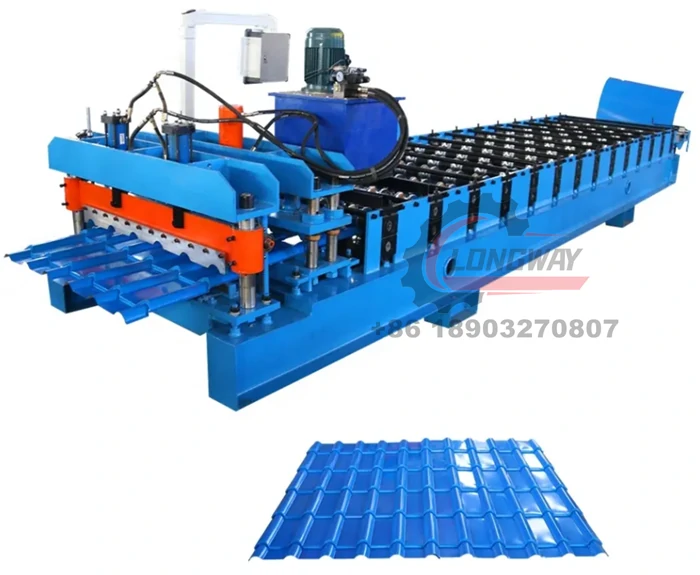Custom Roll Forming Machine Manufacturer Offering Tailored Solutions for Your Unique Production Needs
Custom Roll Forming Machine Factory Innovating Metal Fabrication
In the world of metal fabrication, roll forming stands out as one of the most efficient and versatile methods for producing a variety of shapes and profiles. A custom roll forming machine factory specializes in designing and manufacturing roll forming equipment tailored to meet the unique needs of different industries. With technological advancements and growing demands for customized solutions, these factories play a crucial role in enhancing production efficiency and product quality.
Understanding Roll Forming
Roll forming is a continuous bending operation in which long strips of metal, typically steel or aluminum, are fed through a series of rollers. These rollers gradually shape the metal into the desired cross-sectional profile. The process is highly efficient, allowing manufacturers to create long lengths of uniform shapes without the need for additional cutting or welding. This characteristic makes roll forming ideal for producing components used in automotive, construction, HVAC, and appliance industries, among others.
The Importance of Customization
Every industry has distinct requirements. As such, a one-size-fits-all approach may not suffice. A custom roll forming machine factory recognizes this need for personalization. They develop machines that can be adjusted to accommodate various materials, thicknesses, and complex profiles. By collaborating with clients to understand their specific needs, these factories can create customized machines that enhance productivity and reduce waste.
For example, a factory might produce a roll forming machine equipped to handle high-strength steel for automotive parts, or it could design a machine capable of creating intricate shapes for decorative architectural elements. This level of customization not only improves efficiency but also opens up new markets and opportunities for manufacturers.
custom roll forming machine factory

Advanced Technology in Roll Forming
Modern custom roll forming machine factories often integrate advanced technologies into their production processes. Computer-aided design (CAD) software allows engineers to visualize and modify designs before production begins, ensuring accuracy and efficiency from the start. Additionally, automation and robotics are increasingly employed to streamline operations, minimize human error, and enhance safety in the workplace.
Moreover, the integration of Industry 4.0 technologies enables real-time monitoring of production processes. This data-driven approach allows manufacturers to optimize machine performance, predict maintenance needs, and improve overall productivity. As a result, custom roll forming machines are not only more efficient but also more reliable and easier to maintain.
Environmental Considerations
As the global focus on sustainability grows, custom roll forming machine factories are also considering the environmental impact of their operations. By improving energy efficiency and reducing material waste, these factories contribute to greener manufacturing practices. For instance, the development of machines that can handle recycled materials not only supports sustainable practices but also caters to a market that increasingly values eco-friendly products.
Conclusion
Custom roll forming machine factories are at the forefront of innovation in metal fabrication. By combining advanced technology with a deep understanding of customer needs, these factories create bespoke solutions that enhance efficiency, reduce waste, and promote sustainability in manufacturing. As industries continue to evolve, the role of custom roll forming machines will undoubtedly become increasingly vital, paving the way for more efficient, customizable, and environmentally conscious production processes. Whether it is for simple applications or complex profiles, the importance of tailored solutions in the roll forming industry cannot be overstated.
-
Roof Panel Machines: Buying Guide, Types, and PricingNewsJul.04, 2025
-
Purlin Machines: Types, Features, and Pricing GuideNewsJul.04, 2025
-
Metal Embossing Machines: Types, Applications, and Buying GuideNewsJul.04, 2025
-
Gutter Machines: Features, Types, and Cost BreakdownNewsJul.04, 2025
-
Cut to Length Line: Overview, Equipment, and Buying GuideNewsJul.04, 2025
-
Auto Stacker: Features, Applications, and Cost BreakdownNewsJul.04, 2025
-
Top Drywall Profile Machine Models for SaleNewsJun.05, 2025








